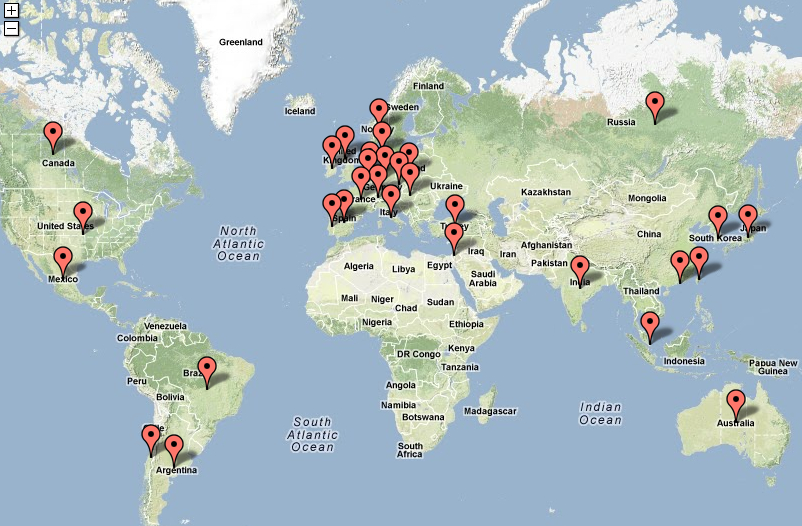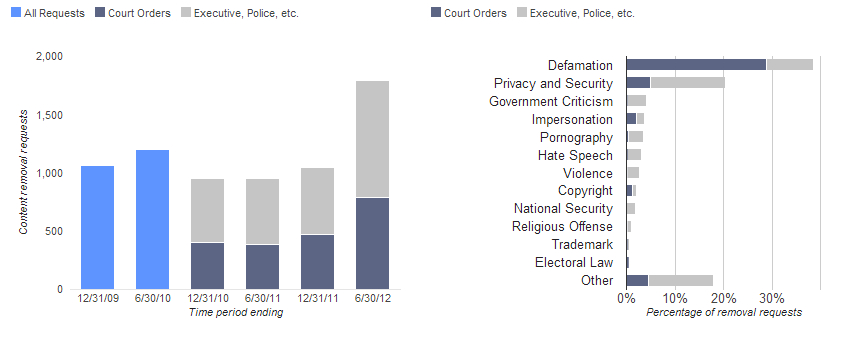International governments made nearly 21,000 requests to access nearly 35,000 pieces of user data on Google’s services, according to the company’s biannual Transparency Report.
Read more about the report here and Google’s stark warning.
Google’s Transparency Report is a massive document – this interactive site outlines the amount and types of data that governments, justice agencies (courts, police etc), and private companies request Google for access to or removal of. It also outlines the number of requests private companies made to Google in order to have data removed from its servers.
The Transparency Reports display three sets of data;
- The number of requests made to Google (and by which agency)
- The number of accounts they requested access to (one request could ask for data from more than one user’s account) or units of data to be removed.
- The percentage of requests that have been successful – Google will not comply with all requests for users’ data
Data Access
This Transparency Report, which covers the first six months of 2012, contains details on 31 countries which asked Google for access to users’ data held by the company. In this report there has been no change in the countries that made the greatest number of requests, although some have change places. The top ten three countries, USA, India, and Brazil remain the same in this report as last terms’.
Over half of the requests (17) came from Europe (13 of the 31 requests came from EU member states).
Of these, France made the largest number of requests (1,546) to access 1,880 accounts. Google says that 42% of these requests were granted. Germany, which has strict privacy laws, comes a close second with 1,533 requests but these looked for access to a larger number of users’ accounts (2,007); some 39% of these requests were granted.
This could mean that Germany was given access to more data than France, depending on the number of accounts mentions on individual requests; as much as Google’s data reveals is still leaves some questions unanswered.
Of the countries listed the Danish, Irish, and Norwegian governments made the smallest number of requests for users’ data but the Irish Government was the least successful, with only 6% (about 2 requests) being successful. Some 78% and 70% of the Danish and Norwegian requests, respectively, were successful.
For its part Google says that it expects the number of requests to increase year-on-year as it releases more products;
“The number of requests we receive for user account information as part of criminal investigations has increased year after year. The increase isn’t surprising, since each year we offer more products and services, and we have a larger number of users.”
Data Removal
When it comes to removing data, Google says that defamation and privacy are the two most cited reasons for complaints to the company.
In one surprising statement Google says that requests from the UK for data removal increase by 98% on the previous six months. The vast majority of these removal requests, 2,864 out of 3,193 were for ads places on Google AdWords.
Unlike the UK, where most request for data removal came from executive or police services, the majority of US requests for data removal came from court orders. Google says that 57% of requests were related to defamation.
In Ireland one item was removed from Google’s services; a YouTube video allegedly containing hate speech.














